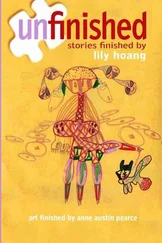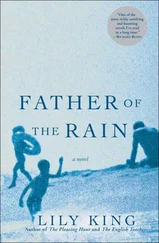Fen nudged me and I followed his gaze to a man at the edge of the crowd. Even if I hadn’t known about him, I would have said he was different. People stood near him, men his age and a girl quite close, but he looked more alone, more psychically removed, than any native I’d ever seen. At the end of the ceremony he was called up to stand at the door of a storage house, but he wouldn’t move. The crowd urged him up, but eventually a garland of tubers was brought to him and placed around his neck. He lifted his head briefly. It seemed all he could do to not rip the heavy necklace off. He was meant to sing the final prayer but he did not, and after a few moments Malun came forward and did it for him.
We talked about him on the way back to the house. Nell agreed with me about his disposition but Fen thought we were overreacting. To him Xambun seemed like any young man returned home after being away for a long time: mildly disoriented, figuring out his new path. Nell wanted to start interviewing him straightaway. She wanted Fen to go find him in one of the men’s houses, but Fen persuaded her that Xambun needed a few more days to settle in, that they would get better information once he got back in the rhythm of his old life.
I have a biographer now, a young fellow who comes round wearing untucked shirts and thick specs. My mother makes him tea and he proceeds to ask me questions. This is the one he seems to want to get at most, the question he brings back visit after visit, sometimes saving it for last, or putting it right up front, or burying it in the middle, thinking he might trip me up. How did you come up with the Grid? I have thought a great deal about why I do not answer. Partly it is shame — though that word hardly captures the depth of it — that prevents me from responding. Another part is that our innocence, our utter ignorance of what lay ahead for Germany and the world, is now nearly impossible to comprehend. And another part still wonders: If we had not come up with the Grid, had not had that experience together, and if I had not stayed but gone back to the Kiona, would any of the rest have happened?
It was late on that third night of my stay on Lake Tam that it happened, that shift in all our stars.
We were back at the kitchen table. We’d gone through Helen’s book again, filled it with marginalia in three different hands.
‘I keep thinking there’s a way to map all of it,’ Nell said. I’d seen how her notes were filled with sketches and diagrams.
‘What do you mean?’ But I knew, of course. I’d seen it. I’d dreamt it.
‘Map the arc?’ Fen said.
‘Orientation.’ She and I said it at the same time, that one word. Orientation.
‘The idea that cultures have a strong pull in one direction, at the expense of other directions.’
I was drawing the first line as she spoke.
At the expense of other directions. I felt like her words were pulling it out of me and at the same time my axis was pulling the words out of her. I wasn’t sure if I was having my own thoughts or hers. And yet I felt the melting ice, the sense of urgency. I bisected the line. Just as I had drawn it in my dream.
Fen, somehow understanding completely, pointed to the top of the page, above the top of the vertical line. ‘Mumbanyo.’ And then to the bottom of it. ‘Anapa.’
We fell on this piece of paper, each of us with our pencils, shouting out and filling in the four points of the compass with the names of tribes and then countries. If we stopped at that moment and suggested criteria, defined each direction of the compass, I have no recollection of it. In my memory we went at it instinctively, fully agreeing that Americans were Northerners like the Mumbanyo and that Italians belonged in the South with the Anapa. To the West were the Zuni and to the East the Dobu and the other Dionysian North American tribes. We had to add Southeast for the Baining and Northeast for the Kiona. We ran out of room and had to add a page to all four sides of the initial paper, sticking them together with fig sap and then racing on to get our ideas on the page. We were all bent close together, arms overlapping, foul-breathed and two-years filthy, and I felt like I was back in England with my brothers, included in some pressing project of theirs, making a birdhouse or the backdrop to one of Martin’s elaborate plays.
In time we did work out definitions for each point of our compass. The cultures we put in the Northern vector were aggressive, possessive, forceful, successful, ambitious, egoistic. The id of the grid, Nell said. By contrast the Southern cultures were responsive, nurturing, sensitive, empathetic, war-averse. To the West were the Apollonian managers who valued unemotional efficiency, pragmatism, extroversion, while the Easterners were spiritual, introverted seekers, interested in the questions of life more than the answers.
Fen’s own temperament did not allow him to dissolve indefinitely into our collective thinking; he participated awhile then pushed us away, as if gasping for breath. When Nell tried to align one of Jung’s functions of consciousness to each quadrant, Fen slapped her pencil away from the page.
‘You don’t understand a thing about it.’
‘Explain it to me then.’
‘It’s far more complex than what you’ve got here. There are sixteen combinations of dominance.’
She flipped over to a fresh page in her notebook. ‘What are they?’
But he wouldn’t tell her.
‘You haven’t put in the Tam,’ I said, thinking to smooth over the tension.
‘Go ahead,’ Nell said to him.
He shook his head.
‘Fen. Go on.’
The omission had been deliberate.
‘What does it matter what my opinion is? Yours is the one that counts.’
‘What are you talking about?’
‘I’m talking about’—he wrapped both fists around his pencil—’I’m talking about the charade of us doing this together when we both know what you think about the Tam is what people are going to know about the Tam.’ He turned to me. ‘She thinks she knows the Tam men. She thinks they’re vain and gossipy like Western women. She thinks she’s found this big swap of sexual roles but she doesn’t spend any time with men. She’s not making canoes and building houses with them as I am. She doesn’t give a tinker’s cuss for my notes.’
‘You have no notes! You’ve given me next to nothing.’
‘Eighteen pages in one day on cross-sexual kinship lines.’
‘Which turned out to be based on a false premise.’ She looked down at our paper and took in a steadying breath. ‘You will write your own book, Fen. You will write what you see and—’
‘And who will read that? Who will read that when there’s a book by Nell Stone on the same subject?’ He flung the pencil across the house. ‘Fucked if I do, fucked if I don’t,’ he said, slumped in his chair.
‘You are certainly fucked if you don’t do the work we’re here for. And I’m fucked, too.’ Nell slammed his pencil back on the table. ‘You put down the Tam men and I’ll put down the Tam women.’
She waited for him to go first. It took a while, an awkward silent while, but then he lifted himself and put the Tam men in the aggressive but artistic Northeast. She put the Tam women in the Northwest.
And this led to another round of mapping as we separated men from women, finding that while the male ethos usually represented the culture at large, within a culture women offset the ideal.
‘Sort of a built-in thermostat,’ Nell said.
Fen tried to resist, to continue to sulk, but he was as compelled by the idea as we were. We talked of women we knew, the way they worked against the aggressive Western male norms. The hours passed. Sometime before dawn the sky rumbled and we went outside to see if this was it, the beginning of the real rains, but it wasn’t. The heat was heavy and wet and we decided a swim before sleep might do us good.
Читать дальше











